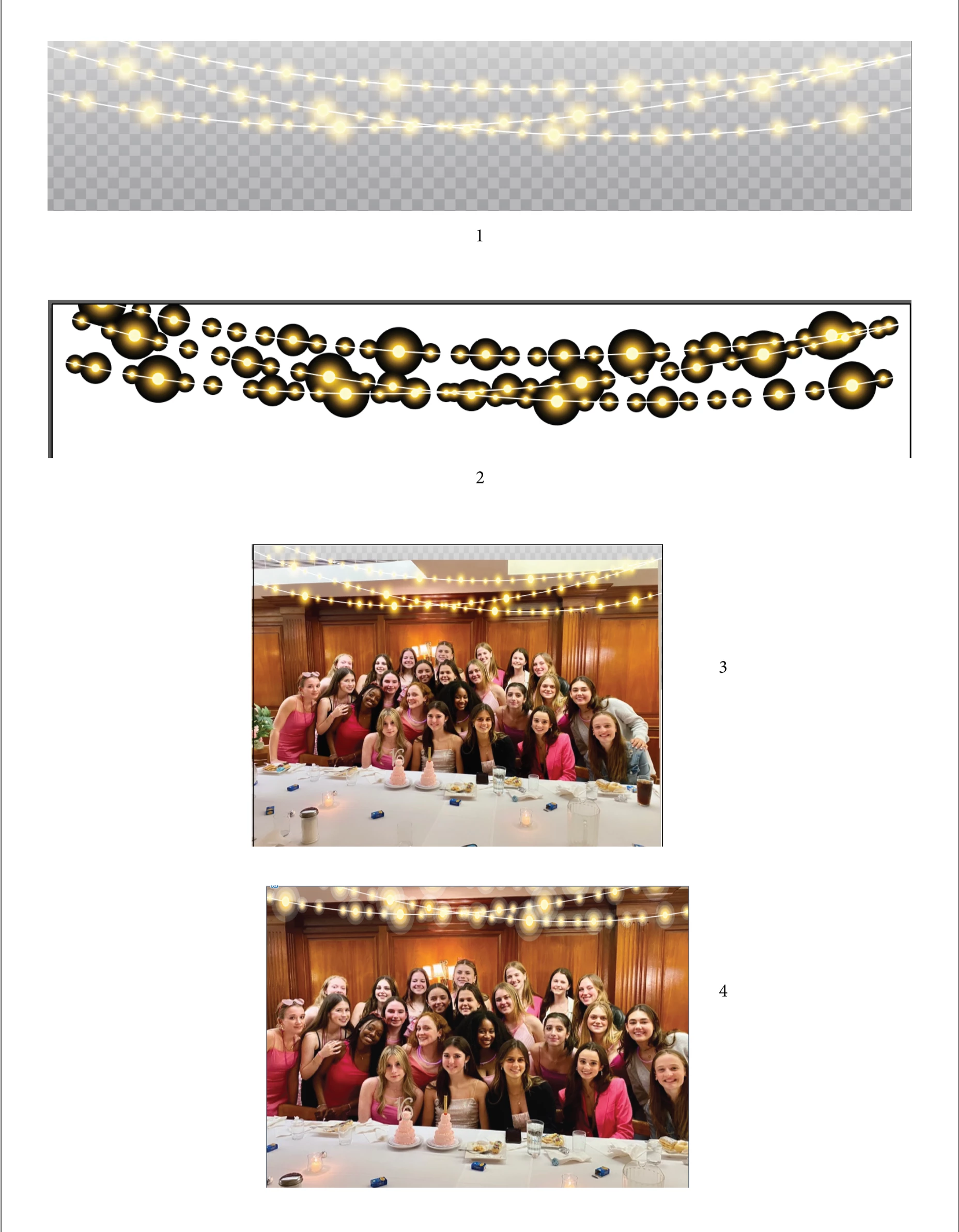Vector File contains checked background that is live art
Have to add a string of lights to a photograph so I purchase a vector file. But when I go to used it the checked background is part of live art (#1). I turn off the background and get a mess (#2). So I insert my photo between the background and the lights and it previews fine (#3) but when I print I get a mess with poor gradation in the lights (#4). How does one use a vector string of lights without the checked background which defeats the purpose of the lights. I thought there might be a lighs brush in the brush library but if it exists, I can't find it. Thanks in advance for your help.

